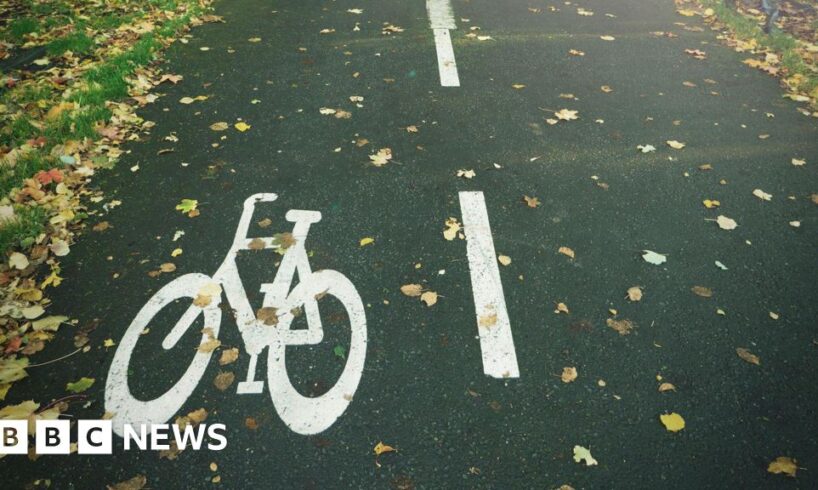
Louise CullenAgriculture and environment correspondent, BBC News NI
Getty Images
Departmental analysis states £85m should be spent on active travel per year but current estimates suggest it is spending £50m a year
Spending on support for cycling, wheeling and walking needs “a significant increase”, a report by the Auditor General has found.
Dorinnia Carville’s report has also found that the Department for Infrastructure’s (DfI) record on delivering its active travel targets is “poor and has had little impact”.
And without increased expenditure, it may not be able to comply with the requirements of the Climate Change Act.
Ms Carville has made seven recommendations including the creation of an overarching strategy which should be “properly resourced” and timetabled.
She added that “historic failure to deliver against high-profile plans has significantly damaged stakeholder confidence in the department’s ability to deliver significant improvement”.
NIAO/PA
Auditor General Dorinnia Carville says there has been a “historic failure to deliver against high-profile plans” when it comes to active travel
The projects that have been delivered have “still required substantial investment” and the evidence available does not demonstrate that the investment made to date has materially improved cycling rates.
Given that active travel has the potential to make “a substantial contribution” to health, the environment and the economy, Ms Carville said it was “disappointing” that there was no evidence of a long-term trend of more journeys being made this way.
“The report identifies a number of areas for improvement, citing the need for improved co-ordination and clarity around how any future plans will contribute to strategic objectives, as well as transparency on how funding will be prioritised.
“Improved engagement with interested stakeholders will also be vital if the department is to inspire confidence in its future delivery of active travel.”
Investment in active travel infrastructure represents “an opportunity” for the department, but the Auditor General’s report places more emphasis on ensuring that investment is spent “efficiently and effectively”.
Getty Images
The report found that evidence available does not demonstrate that the investment made to date has materially improved cycling rates
A Cycling Strategy was launched 10 years ago, but three of its key aims have been missed.
It set a target of 20% of all journeys less than a mile being cycled by 2025, but just 1.1% are cycled based on the most recent data (2021).
It says 10% of journeys a year between one and two miles, and 5% of journeys between two and five miles, should be cycled by 2025.
But just 0.5% and 1.1% respectively were being cycled in 2021.
And the car remains the dominant mode of transport, accounting for 69% of all journeys made and 84% of the total distance covered by those journeys.
The Cycling Strategy is supported by a Strategic Plan for Greenways (2016) and the Belfast Cycling Network Delivery Plan (2022).
Just 30% (130km) of a 330km greenway infrastructure interim target for March 2026 had been delivered by April 2025.
A new cross-border greenway linking Newry City and Carlingford village was opened earlier this month, but just 30% of the greenway infrastructure interim target had been delivered by April 2025
The Climate Change Act requires 10% of the DfI’s total transport budget to be spent on active travel per year, but it did not define what that budget should be considered to be or what would constitute “active travel expenditure”.
Departmental analysis suggests the average transport budget is around £850m per year, meaning £85m should be spent on active travel.
Current estimates suggest it is spending £50m a year.
The report says the department would need to “significantly increase its investment” to comply with the Act.
The Walk, Wheel, Cycle Trust, formerly known as Sustrans, said they were “disappointed and frustrated at the lack of progress on increasing active travel journeys”.
“Our analysis is that we need both protected cycling infrastructure and behaviour change programmes to really get modal shift and it takes time to achieve this,” the charity said in a statement.
“Unfortunately, DfI and the [Northern Ireland] Executive in general has not invested enough, particularly in behaviour change.
“We urge DfI to redouble its efforts to direct spending towards active travel, not just by building the infrastructure but investing in behaviour change programmes.”





